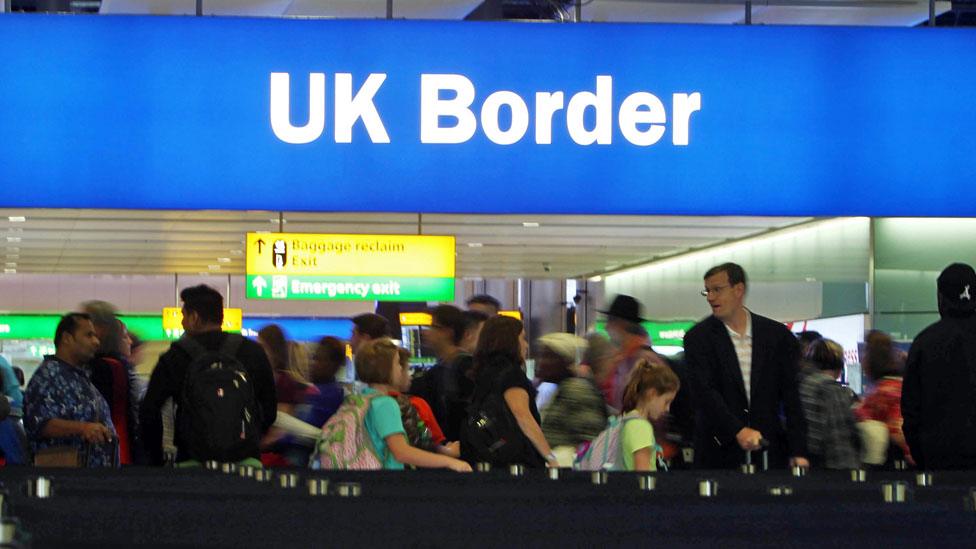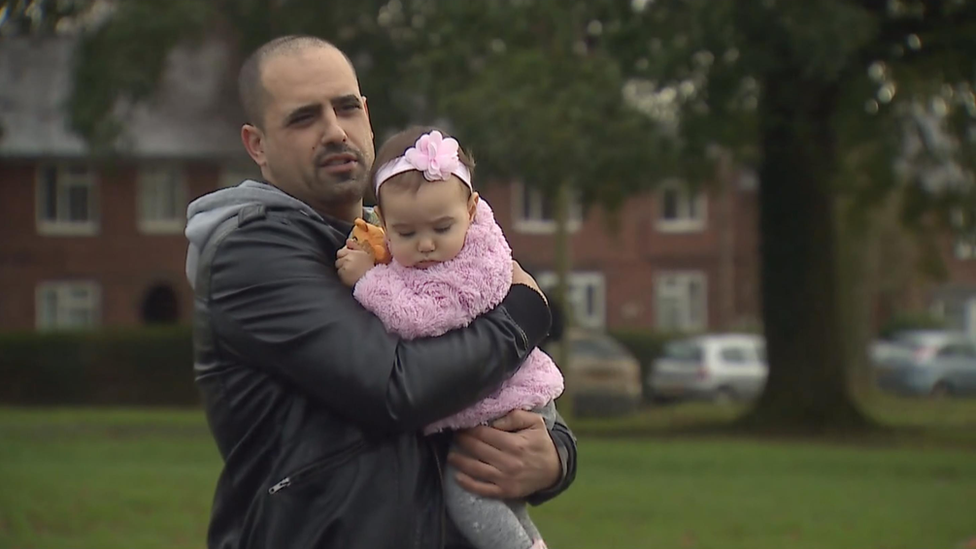Brexit: EU citizens in the UK 'at risk of deportation'
- Published

EU citizens have until 30 June to submit their applications for EU settled status
EU citizens eligible to stay in the UK post-Brexit are at risk of "slipping through the net" and being deported, a group of Senedd members have warned.
They said the pandemic had made it more difficult for migrants to access support with their applications to remain.
One campaigner warned of a "Windrush-plus" scenario in the future.
The Welsh Government said it was "committed to supporting" the thousands of people affected.
Immigration Minister Kevin Foster said where people eligible for the scheme have reasonable grounds to miss the deadline they will be given further opportunity to apply.
EU citizens have until 30 June to submit their applications for EU settled status, external.
Ahead of the deadline, the Senedd External Affairs Committee has written to Welsh and UK ministers outlining its concerns.
"EU citizens have an important role to play in Wales," said committee chairman David Rees.
"Under the Brexit agreement they have the right to stay in the UK and the Welsh Government has said it welcomes them.
"While immigration is not devolved, this committee is concerned that the excellent support which was available pre-pandemic is dwindling and that people are at risk of slipping through the net.
"With the deadline for applications approaching in June, we think it is critical the Welsh Government step up its campaign to reach EU citizens and make sure people who don't necessarily have access to digital resources such as the internet are given the time they need to submit their application."
Mirasol's father says her documents are with Portuguese consulate and difficult to retrieve during the pandemic
Wiard Sterk is part of the3million organisation that has campaigned to protect the rights of EU citizens in the UK.
He said even if 70 to 80% of EU citizens in the UK applied for settled status in time, that would still leave "a large number of people unprotected by the rights that they currently enjoy".
He said the risks had become "severely worse" due to the Covid-19 restrictions making it more difficult for people to access advice.
'Windrush-plus'
Mr Sterk also explained that some, often elderly people, have been required to "go to enormous lengths" to have their passports renewed in order to complete their application.
"There's a great risk of a Windrush-plus," Mr Sterk warned.
"We have similar circumstances to Windrush cases where people could be found to be undocumented in years to come, whilst they have actually lived all their life in this country or most of their lives."
The Windrush scandal, which broke in April 2018, saw the UK government apologise for deportation threats made to Commonwealth citizens' children.
Mr Sterk said extending the application deadline would be "very helpful" but it would be better to remove the deadline altogether.
"The best way really is to remove the compulsory nature of this application process and go for a registration process," Mr Sterk said.
"We should remove that cut-off point for people and that will give them more security in future."
A Welsh Government spokesman said: "We are fully committed to supporting the thousands of EU, EEA and Swiss citizens, who enrich our communities and contribute to our public services and economic success immeasurably, to apply for settled status.
"That's why, since July 2019, the Welsh Government has made available a package of free support to help EU citizens apply to the UK government's settlement scheme, and continue to live and work in Wales after Brexit. We are actively considering what further support we might offer.
"We continue to raise awareness of the need to apply to settled status scheme through regular communications."
UK Immigration Minister Mr Foster said: "The government has made clear where a person eligible for status under the EU Settlement Scheme has reasonable grounds for missing the deadline, they will be given a further opportunity to apply.
"As already confirmed, the Home Office intends to publish clear, non-exhaustive guidance in Spring 2021 on what constitutes reasonable grounds for missing the deadline.
"We will take a pragmatic and flexible approach in considering the circumstances of each case, so that those who miss the deadline through no fault of their own can still obtain lawful status in the UK."
- Published26 January 2021

- Published20 February 2020

- Published7 January 2021
